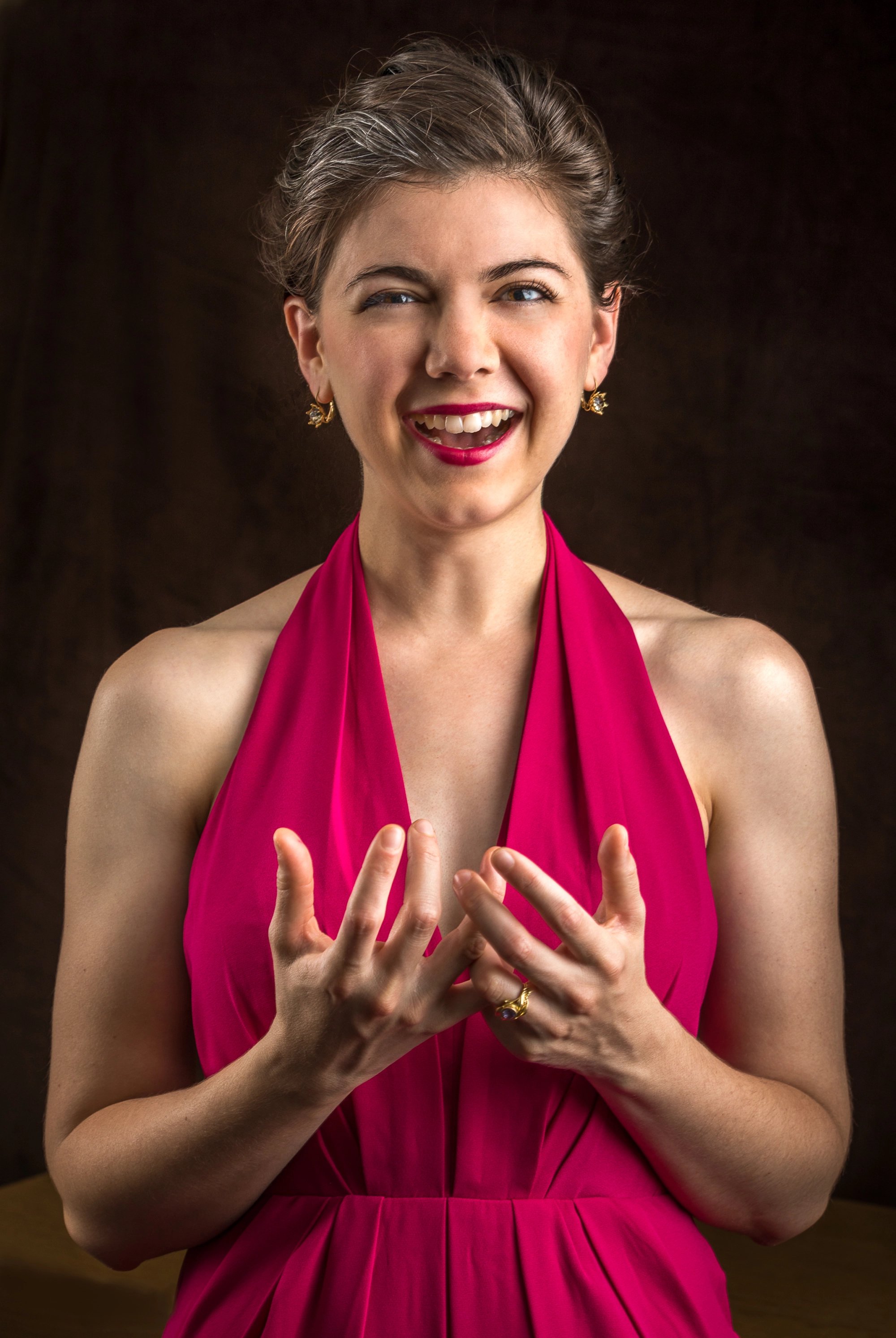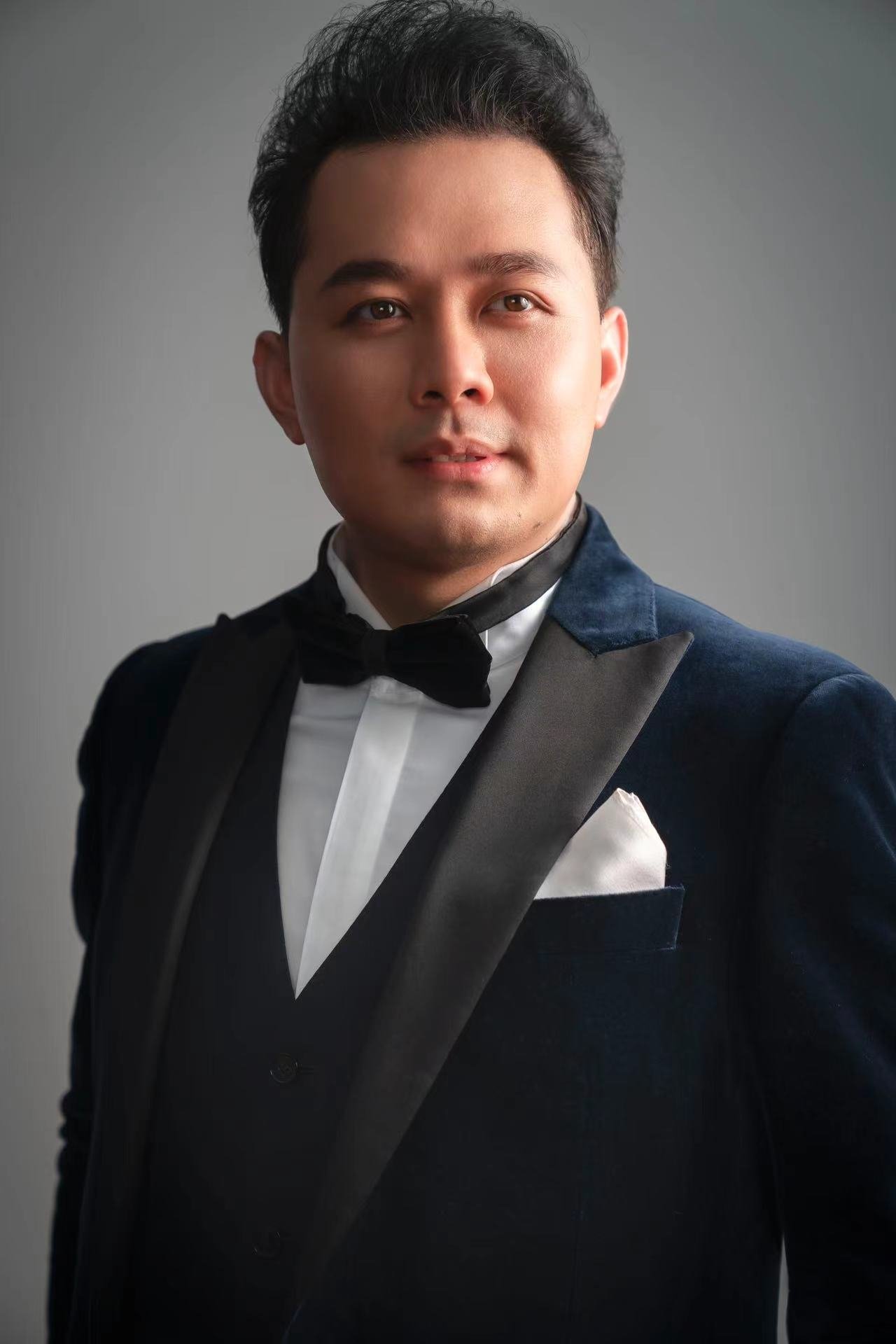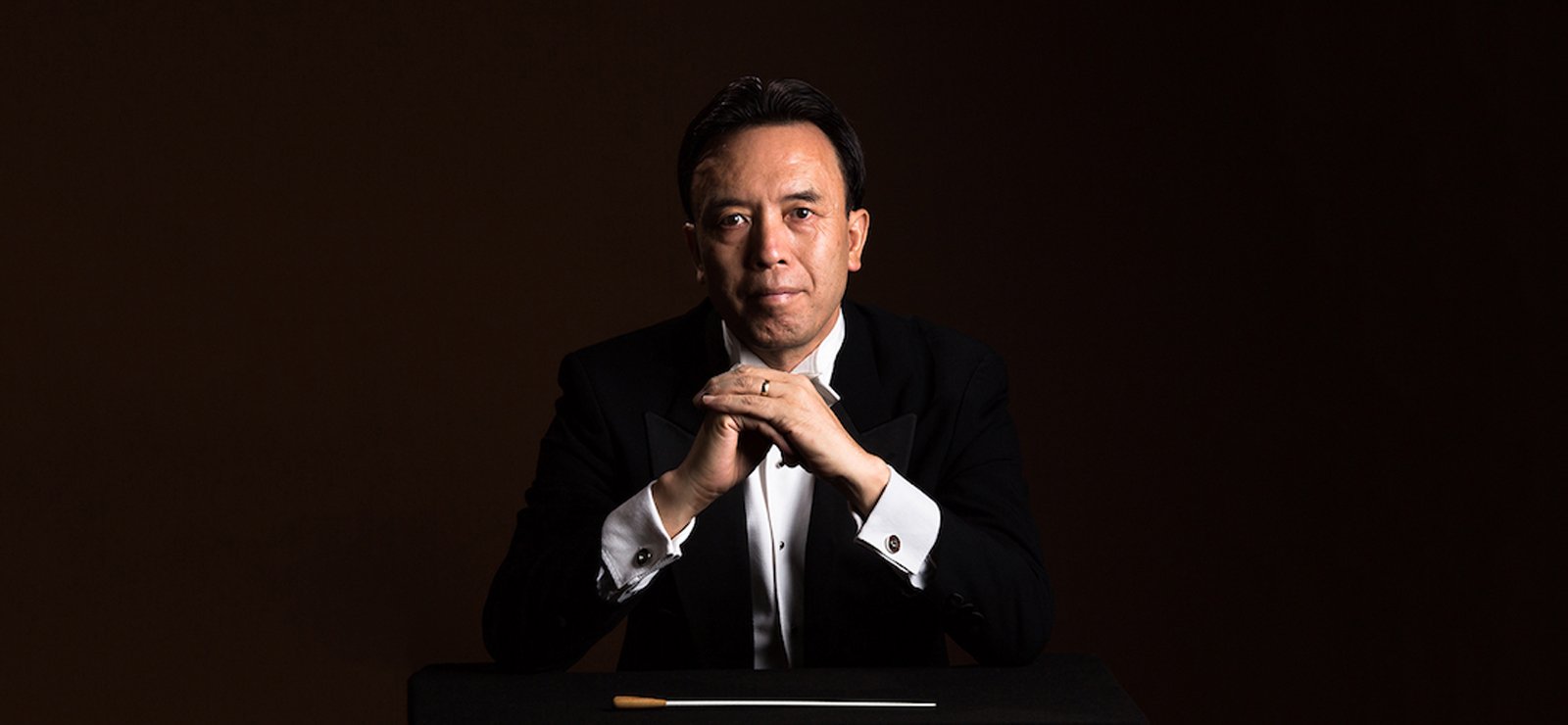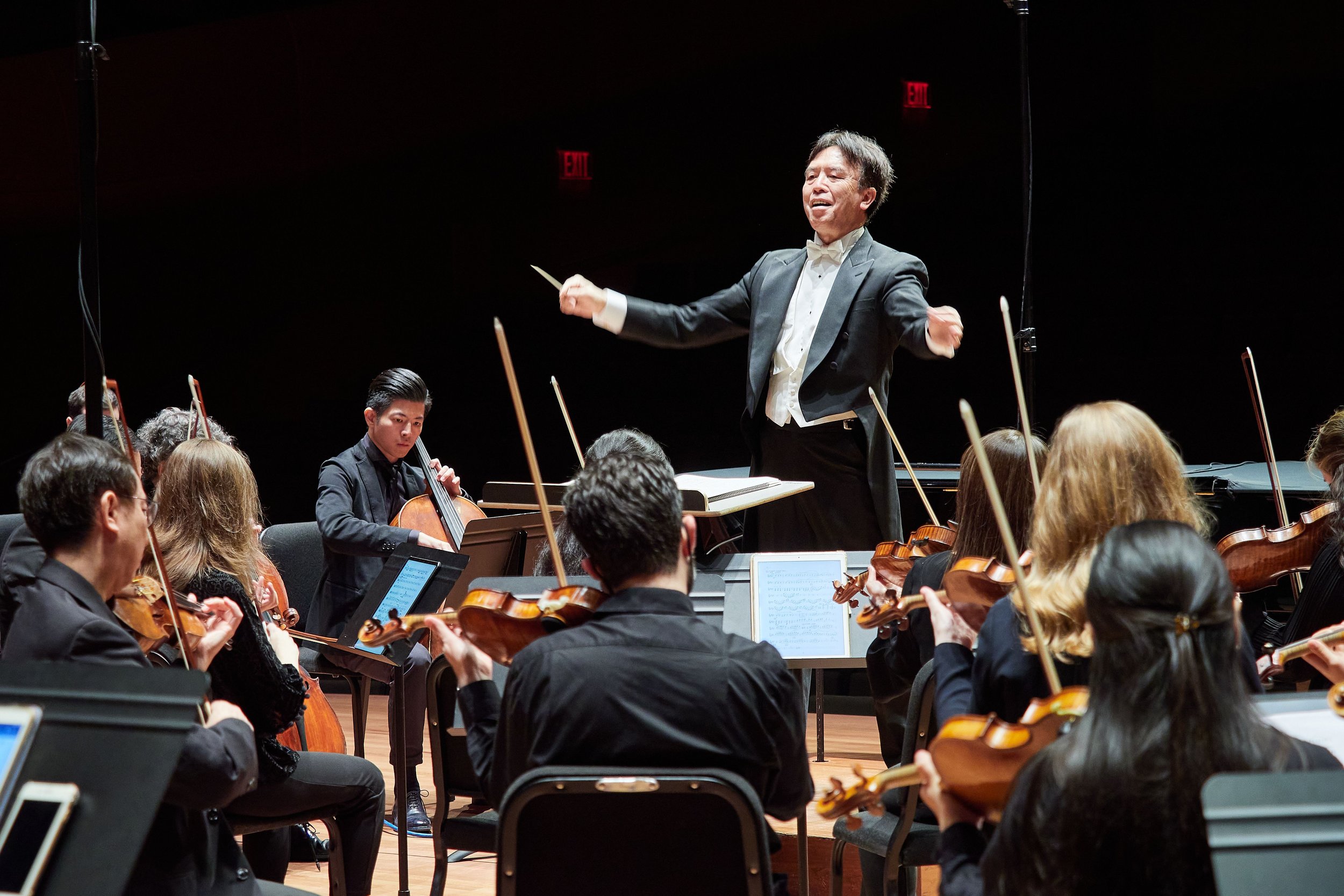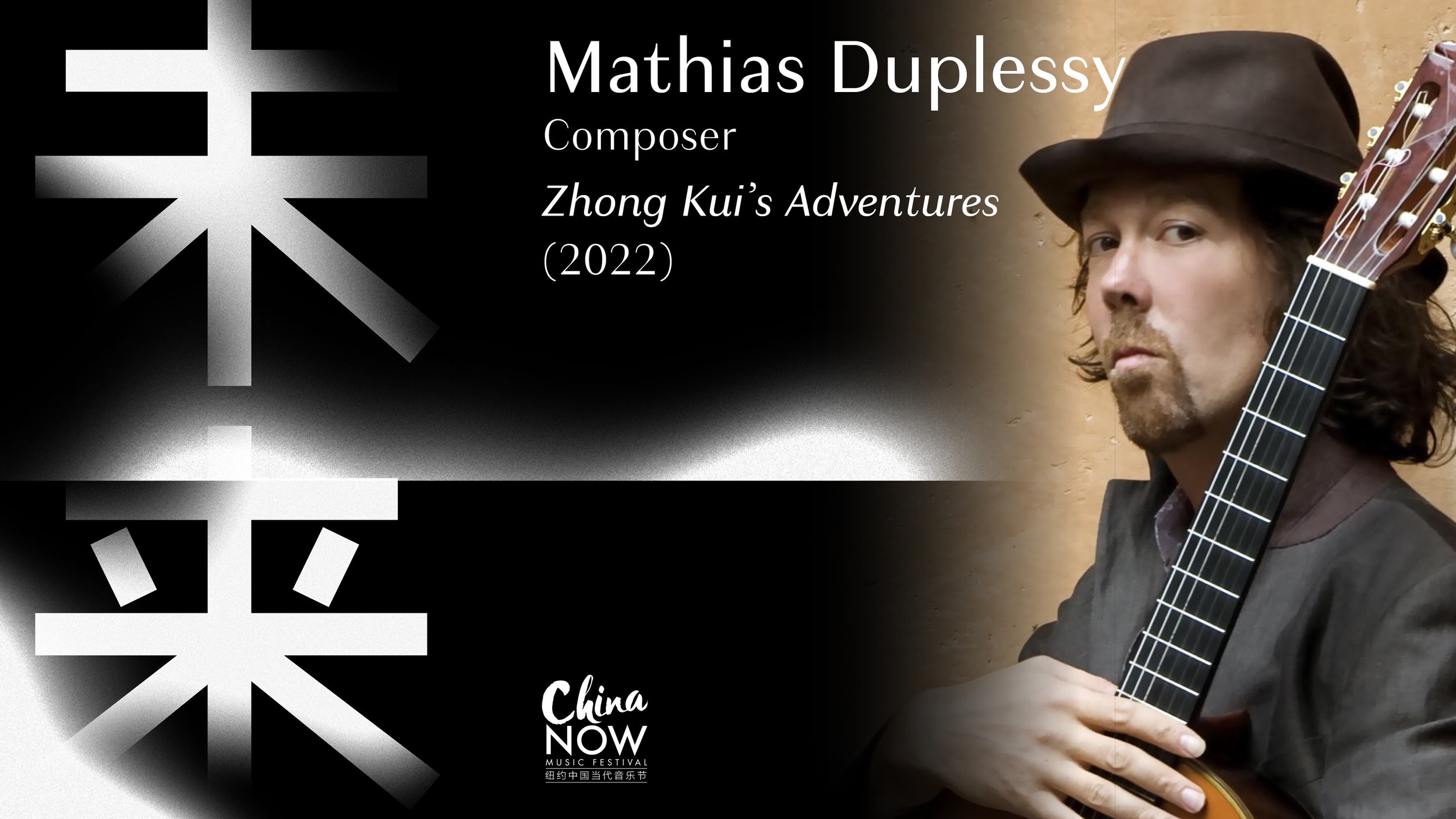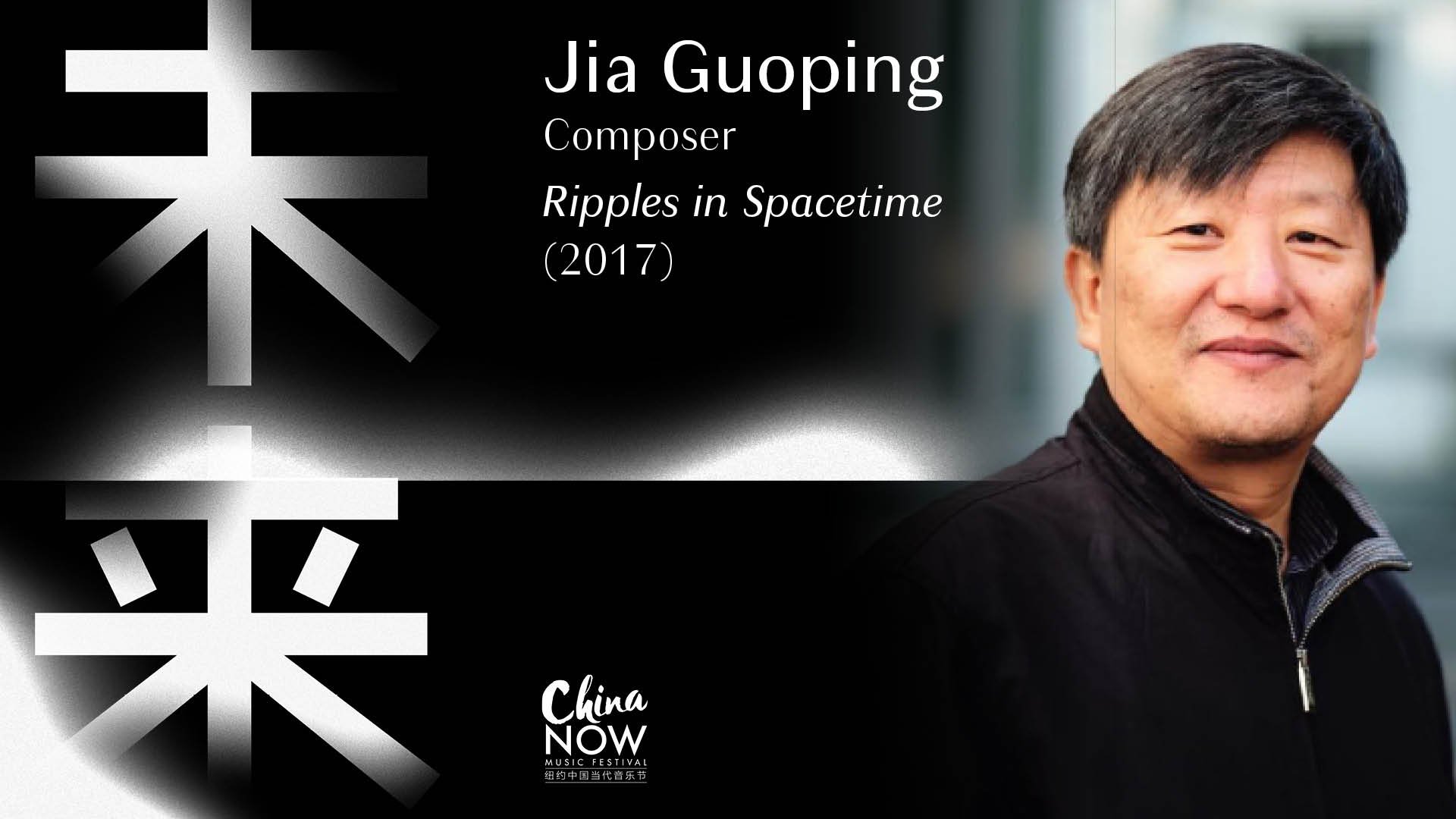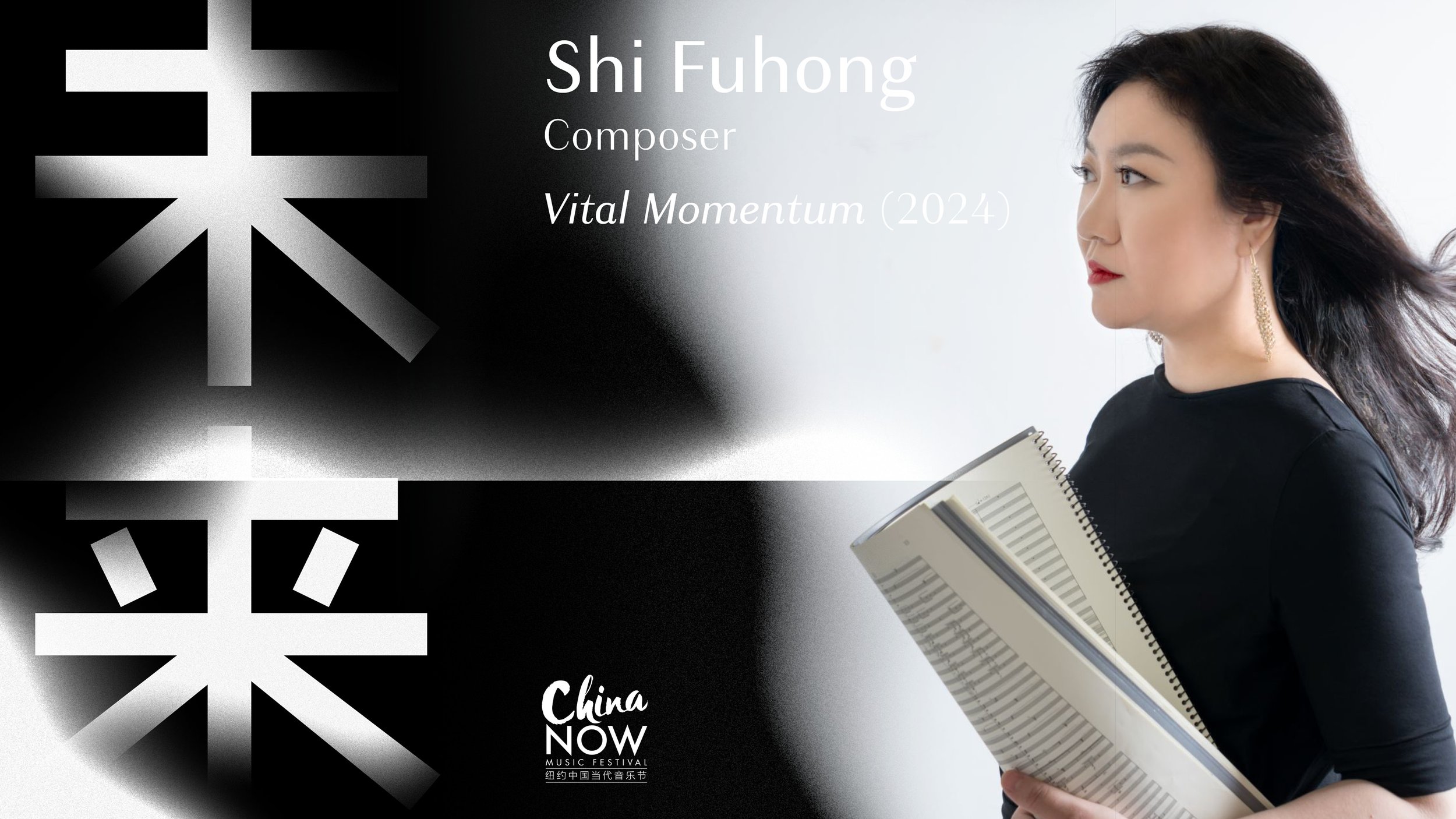The 7th annual China Now Music Festival concludes at Carnegie’s Zankel Hall with a concert opera by visionary composer Hao Weiya. Hao’s AI’s Variation, Opera of the Future is a science fiction-themed drama for three voices and chamber orchestra, and is the second installment of his chamber opera trilogy. AI’s Variation tells the story of a troubled artist who allows his identity to be ‘enhanced’ by AI but then struggles with the consequences in his personal life.
The first half of the program features a performance by the dynamic young musicians of the Bard East/West Ensemble presenting newly commissioned works for Chinese and Western instruments, with a special appearance by the guzheng and guitar combo Duo Chinoiserie.
Performer and program details below.
Additional free performance in Sosnoff Theater at Fisher Center for the Performing Arts on Friday, October 18 at 7 PM. LEARN MORE
CONCERT PROGRAM
Bard East/West Ensemble
Jindong Cai, conductor
Jia Guoping
贾国平
(b. 1963)
Ripples in Spacetime for sheng, pipa, and zheng《时空的涟漪》 (2017)
-
Ripples in Spacetime is dedicated to an outstanding Chinese astronomer, Nan Rendong, the chief scientist and head engineer of the Chinese FAST project, and is an expression of sincere respect for his pioneering work.
The inspiration and core sonic gestures of this work all come from three slices of a pulsar’s signals in deep space that were discovered by the Chinese Five Hundred Meter Aperture Spherical Radio Telescope (FAST) in 2017. The dominant pitches of this work originate from the initial letters of FAST. In addition, the composer intends to fuse typical sounds played by Chinese traditional instruments—sheng, pipa, and zheng—with those of Western instruments to create a unique musical world.
Yan Yan 闫言
(b. 2003)
Shi Fuhong
史付红
(b. 1976)
The Painted Skin 《画皮》(2024) (abr., commissioned by the China Now Music Festival)
I. Demon-Song III. Song of Souls IV. Heart-Spirit
Vital Momentum 《生命律动》
(2024, commissioned by the China Now Music Festival)
-
Vital Momentum is written for Chinese and Western mixed ensemble, and symbolizes an indomitable spirit of life while also conveying reflections on life, nature, and fate. At the same time, it expresses a yearning for the pursuit of beauty, a bright future, and happiness.
The musical work is divided into three main sections:
The first section consists of a fast-paced music segment characterized by a blend and contrast of dissonance and consonance, full of dynamic and energetic tension. The musical theme is built from wide leaps and chromatic intervals, and the music is filled with passion and driving force.
In the second section, the music gradually calms down, resembling the echoes of nature and the heartbeat of life—echoes in the empty valley, distant mountains resonating, the contin- uous and endless whispers between heaven and earth. It represents the continuity of life.
Throughout the third section, the arrival of a new life brings hope and light to humanity. This section is a tribute to life, a reverence for life, and a celebration of life. The music once again enters a rhythmic and dynamic state, ultimately concluding the work in a state of ecstatic dynamism.
Mathias Duplessy
(b. 1972)
Zhong Kui’s Adventures
(2022, arr. 2024 for the China Now Music Festival)
arr. Vsevolod Polonsky
-
French composer Mathias Duplessy’s Zhong Kui’s Regrets and Zhong Kui’s Journey were commissioned by Duo Chinoiserie in 2020. Duplessy’s arranger, Vsevolod Polonsky, created this new arrangement for the Duo and the Bard East/West Ensemble, to be performed for the first time in the China Now Music Festival. This piece is inspired by the tragic story of Zhong Kui, a character from Chinese mythology known as a demon hunter and the king of ghosts. Here is the composer’s brief introduction of the piece:
"What if I, a Frenchman, wrote a Chinese composition? That's what came to my mind when Duo Chinoiserie asked me for a commission and gave me carte blanche.
I could not have been more excited to compose for them: their duo is very original (I had never heard the guzheng mixed with the classical guitar) and very sharp musically thanks to their virtuosity and eclecticism.While looking for a source of inspiration a memory surfaced: A few years before, a character from Chinese mythology caught my attention while I was walking in the corridors of a Palace during a tour in Taiwan. The character was Zhong Kui, the demon hunter, with his ungainly and humorous head and a shaggy beard, his epicurean and charismatic bonhomie, his little bat that follows him in his adventures... I had found my inspiration!
I did some research to get a feel for it, then a phrase came to mind to personify Zhong Kui, like Morricone when he composes for Westerns. All I had to do was to develop and weave a musical story around these few notes.
The fast movement depicts Zhong Kui riding in pursuit of demons like a Chinese Western... Adventure, humor, fights and heroism! For the slow movement, on the other hand, I imagined the character at rest, nostalgic, immersed in the reverie of a love lost. Here, my French compositional style is more present in the harmonies and the form, with Ravelian tonalities and Debussy-like chords resonating with romantic lyricism. In the fast movement, it is the guzheng that has the beautiful part because of its mad virtuosity, by contrast with the slow movement, since it is the guitar which sings from the bottom of the Chinese mountains."
INTERMISSION
China Now Chamber Orchestra
Jindong Cai, conductor
Hao Weiya
郝维亚
(b. 1971)
AI’s Variation, Opera of the Future 《七日》
(2021, abr. 2024 for the China Now Music Festival)
-
AI’s Variation is a science fiction chamber opera, the second work of Hao Weiya’s Chinese New Opera series. The libretto is by Wang Yuanfei.
When one day AI (artificial intelligence) outperforms, even replacing us humans in every way, who would be “we”? What would we be worth? What would be the meaning of our lives?
The answers, relating to the ethics of science and technology, send shivers down our spines.The opera is divided into seven parts that correspond to the events of seven days in the future. (NOTE: The abridged concert version adapted for the China Now Music Festival presents days two, four, six, and seven.)
The First Day: The theme of “Light”
The Second Day: Who are you? Who am I? (Situ Rui)
The Third Day: “Light” variation 1
The Fourth Day: Where are you? (Chu Qiao)
The Fifth Day: “Light” variation 2
The Sixth Day: The last man on earth sat alone in a room (Li Yao)
The Seventh Day: There was a knock on the door . . .The opera looks at a slice of the future, when artist Situ Rui is stuck in a creative rut and facing physical death. To save him, scientist Li Yao uses artificial intelligence technology to completely “update” Situ Rui. Hearing of this, Chu Qiao, Rui’s lover, comes to visit him. Qiao is unable to face the situation, and even doubts whether the new Rui, who looks the same, can still remember and understand the love between them. Situ Rui, Chu Qiao, and Li Yao tell the story of this meeting in their own words and with different interpretations.
The production draws on a number of famous features in literary and musical classics, such as the works of William Shakespeare, Richard Strauss’s Tod und Verklärung, and Claude Debussy’s Prélude à l’après-midi d’un faune.
about THE performers
about THE COMPOSERS
EMERGING COMPOSERS DISCOVERY PROJECT
YAN YAN 闫言 (B. 2003)
Yan Yan, born in Shanghai in 2003, is currently studying at the New England Conservatory of Music. His creative genres include both symphonic and chamber music. The China Now Music Festival commissioned Yan Yan’s piece Painted Skin as part of its initiative to encourage promising young composers to write new works for the Bard East/West Ensemble’s unique instrumentation.
THE CHINA NOW MUSIC FESTIVAL IS PRESENTED BY









